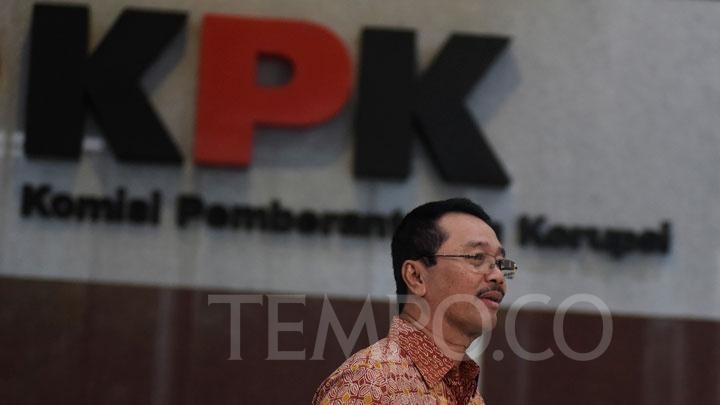Time to Increase Fuel Prices
THE government has thrown in the towel over fuel subsidies at a time of rising world oil prices. President Joko Widodo may raise the prices of Pertalite gasoline and diesel fuel at the beginning of September. They are likely to increase by Rp2,000 to Rp3,000 Per liter.
The global price of crude oil has passed the US$100 per barrel mark. This figure is far higher than the government assumption, which had set the Indonesia Crude Price in the 2022 State Budget at US$63 per barrel. As a result, government spending has risen sharply, and the deficit is widening.
Based on calculations by the ministry of finance, the right price of Pertalite in August should be Rp14,450 per liter, or almost twice the retail price of Rp7,650 per liter. The appropriate price for diesel would be Rp13,950, which is Rp8,850 higher than the retail price of Rp5,150 per liter. The government is having to cover the price difference.
Another problem putting upward pressure on the price of Pertalite and diesel is rising consumption. As of the middle of August, consumption of Pertalite had reached 18.73 million kiloliters, or 81 percent of the quota for the year. If this trend continues, consumption of Pertalite could reach 29.07 million kiloliters, far higher than the quota of 23.05 million kilometers. The same is true for the consumption of diesel.
The cost of fuel subsidies has now reached Rp502 trillion. At a time of rising world oil prices, if subsidies are not stopped, the total could exceed Rp700 trillion. The government has no choice but to increase fuel prices. It would be better if these subsidies were diverted to provide cash assistance as well as a cushion for inflation.
This difficult decision would save the state’s finances. If there is a shortfall, the option of increasing the national debt would not be wise, because it would only pass the burden on to the next generation. On top of this, Pertamina is in dire financial straits. Increasing subsidies would lead to an even larger deficit and would worsen the company’s financial position because the government is often late in paying subsidy claims.
If we look at the geopolitical state of affairs, the option of ending fuel subsidies has long been on the cards. Russia’s invasion of Ukraine was bound to affect energy and food supplies. Indonesia’s oil production is no longer sufficient, meaning that imports are needed. Indonesia has long enjoyed low inflation because of constantly increasing energy subsidies.
This week our cover story includes reports on a number of economic problems that Indonesia is facing. What are President Joko Widodo’s reasons for not immediately stopping fuel subsidies? Enjoy the magazine.
Fery Firmansyah
Managing Editor
Price Hikes in Sight
The government is hesitating over ending fuel subsidies because of the impact on inflation. What are the reasons for the delay in increasing fuel prices?
Pertamina’s Financial Crisis
Pertamina is facing financial problems as a result of increasing world oil prices. What about its future?
Towards the Peak of Inflation
Reports of price rises of subsidized fuel have led to a rapid response from the public. Food prices are beginning to rise.
MARKET PULSE
The Vicious Circle of Inflation and Interest Rates
There are always economic trade-offs. If subsidies are ended, inflation will result. Efforts to reduce it by raising interest rates will slow down the economy. What is the solution?
OPINION
The Heavy Burden of Fuel Subsidies
President Joko Widodo has plenty of political capital that allows him to make rational economic decisions. He has the full support of the DPR. It is time to be thrifty.
NATIONAL
Widespread Cases of Forced Hijab
In numerous schools, students are being forced to wear hijab. It is the impact of regional laws and school regulations disregarding religion freedom.
LAW
Failed Cooking Oil Operation
The Jakarta Corruption Court begins hearing the cooking oil corruption case involving Lin Che Wei. It reveals the role played by the then Minister of Trade Muhammad Lutfi.
ENVIRONMENT
Nickel Smelter Pollution
Residents around the Bantaeng Industrial Park are complaining about pollution from Huadi Nickel-Alloy Indonesia’s smelter. Nickel and iron contents in the wastewater exceeded the quality standard.




















